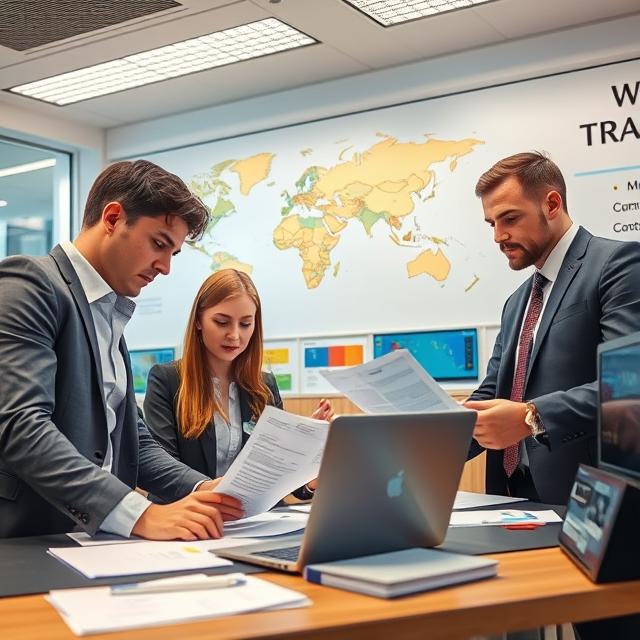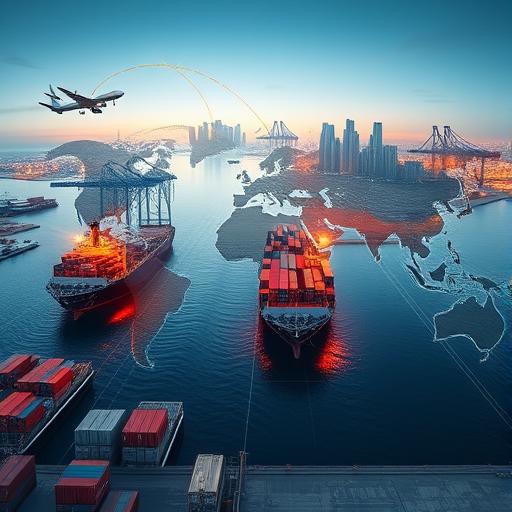Table of Contents
In the dynamic heart of the Middle East, Dubai stands as a global logistics epicenter—a place where East meets West and goods move seamlessly across continents. Every container, pallet, and air freight load passing through Dubai tells a story of precision, speed, and reliability.
But what do real customers and businesses think about freight forwarding in Dubai? What makes some companies outperform others in service reliability, cost transparency, and global network efficiency?
This blog takes you beyond the glossy brochures—into authentic insights from business owners, logistics managers, and frequent shippers who rely on international freight forwarding in Dubai every single day.

In simple terms, freight forwarding is the backbone of global trade. A freight forwarder acts as an intermediary between shippers and transportation services—ensuring that goods reach their destination smoothly, affordably, and on time.
In Dubai, this function is not just a service—it’s a competitive industry powered by technology, automation, and world-class infrastructure such as:
- Jebel Ali Port – The largest port in the Middle East.
- Dubai International Airport (DXB) and Al Maktoum Airport (DWC) – Leading air freight hubs.
- Dubai Logistics Corridor – Integrating sea, air, and land freight routes into one strategic chain.
Businesses choose Dubai not just for its geography but for its freight intelligence—its ability to forecast, optimize, and deliver at scale.
Even with advanced systems, customers often mention recurring challenges:
- Hidden costs after quotations
- Delayed documentation causing shipment holds
- Inconsistent tracking updates
- Communication barriers between multiple logistics agents
These pain points show why transparency, digital communication, and reliability are the new performance benchmarks for freight forwarders.
After analyzing dozens of public reviews, here are the five most common factors businesses highlight when reviewing freight forwarding companies in Dubai:
| Priority | Customer Expectation | Description |
|---|---|---|
| 1 | Reliability | Shipments must arrive as promised, without excuses or hidden changes. |
| 2 | Transparency | Clear cost breakdowns and real-time shipment visibility. |
| 3 | Support | 24/7 human communication, not automated chatbots. |
| 4 | Documentation Accuracy | Fast processing of bills of lading, invoices, and customs papers. |
| 5 | Flexibility | Ability to handle different cargo types—bulk, containerized, fragile, or express. |
Real reviews frequently praise companies that combine technology with human expertise—something that defines modern freight forwarding leaders.
Dubai’s freight ecosystem has evolved dramatically in the last five years. Digitalization, sustainability goals, and predictive analytics have transformed the way companies operate.
Key changes include:
- Smart tracking with AI analytics to reduce delays.
- Blockchain-based customs documentation for transparency.
- Green shipping initiatives reducing emissions in sea and air freight.
- Warehouse automation and IoT integration improving load efficiency.
Businesses now expect end-to-end intelligence—not just cargo handling.
| Mode | Best For | Key Benefits | Limitations |
|---|---|---|---|
| Air Freight | Urgent or high-value cargo | Speed, security, reliability | Higher cost |
| Sea Freight | Bulk or heavy cargo | Cost-effective, eco-friendly | Slower transit |
| Multimodal | Balanced cargo needs | Flexibility, combined routing | Complex coordination |
Many Dubai-based shippers now prefer multimodal forwarding—leveraging both sea and air freight to balance speed and cost.

From Africa to Europe to Asia, Dubai serves as a strategic midpoint for global freight networks. Companies in Ghana, India, the UK, and the USA often route goods via Dubai due to:
- Advanced customs clearance systems
- World-class storage facilities
- Stable logistics regulations
- Access to 180+ international shipping routes
No other Middle Eastern hub offers this blend of infrastructure and global accessibility.
Customers today care not only about cost—but also about carbon footprints. Dubai logistics firms are responding with:
- Eco-friendly vessel options
- Fuel-efficient fleet modernization
- Optimized route planning through AI
- Green-certified warehousing systems
The UAE’s Vision 2030 has made sustainability a measurable KPI for every logistics operator.
- Tech importer, Dubai Silicon Oasis:
“The difference between an average and a good freight forwarder is communication. When you get real-time updates, your business feels in control.” - Furniture exporter, Jebel Ali:
“We shifted to a Dubai-based forwarder because they integrated customs, warehousing, and last-mile in one dashboard—no more juggling multiple agents.” - Automotive dealer:
“Predictive ETA updates helped us plan our stock better and avoid dead inventory.”
These insights highlight that customer experience now defines freight forwarding success more than price alone.
When evaluating your options, look for:
✅ Verified international certifications (FIATA, IATA, ISO)
✅ Transparent rate structures
✅ Real-time tracking capability
✅ In-house customs expertise
✅ Sustainable operations
These checkpoints ensure that your chosen freight forwarder aligns with global standards and regional compliance.
Modern freight companies in Dubai differentiate through:
- Data-driven decision making
- Customer-centric dashboards
- Integrated sea–air solutions
- Predictive freight pricing
This is the future of global trade efficiency—where technology drives trust.

In a market as competitive as Dubai’s, freight forwarding is no longer about moving goods—it’s about moving trust. Businesses want forwarders that think ahead, act transparently, and deliver consistently.
Companies that blend automation with personalized care are setting the next-generation standard for international freight forwarding in Dubai.
If you’re evaluating reliable forwarding partners, consider exploring options like Nautical Gulf—a service known for uniting innovation with integrity in logistics.
